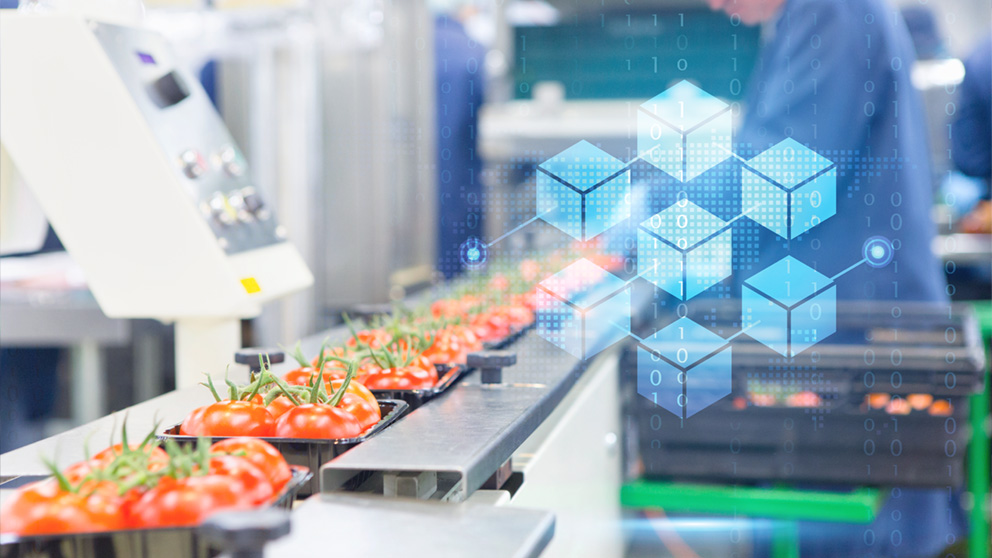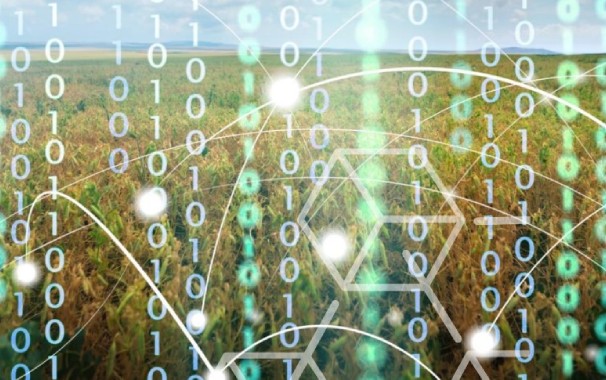Blockchain Applications in the Food Industry
Enhancing Transparency and Trust
 The food industry is undergoing a digital transformation, with blockchain technology emerging as a powerful tool to address various challenges such as food fraud, supply chain inefficiencies, and food safety concerns. In this article, we'll explore the diverse applications of blockchain in the food industry and highlight some of the key blockchains involved in revolutionizing the way food is sourced, produced, and distributed.
The food industry is undergoing a digital transformation, with blockchain technology emerging as a powerful tool to address various challenges such as food fraud, supply chain inefficiencies, and food safety concerns. In this article, we'll explore the diverse applications of blockchain in the food industry and highlight some of the key blockchains involved in revolutionizing the way food is sourced, produced, and distributed.
Supply Chain Traceability
Blockchain enables end-to-end traceability of food products by recording every transaction or event in the supply chain on a decentralized ledger. Platforms like IBM Food Trust, based on Hyperledger Fabric, and VeChain provide solutions for tracking the journey of food products from farm to fork. By leveraging blockchain, stakeholders can access real-time information about the origin, production methods, and transportation routes of food products, enhancing transparency and accountability throughout the supply chain.
Food Safety and Quality Assurance
Blockchain technology enhances food safety and quality assurance by providing real-time visibility into the conditions and attributes of food products. Platforms like FoodLogiQ, built on Ethereum, and Bext360 utilize blockchain to monitor factors such as temperature, humidity, and storage conditions to ensure compliance with regulatory requirements and industry standards. By digitizing and encrypting product information on the blockchain, stakeholders can verify the authenticity of food products and detect counterfeit goods, improving consumer confidence and trust.
Counterfeit Prevention
Blockchain helps prevent food fraud and counterfeit products by creating immutable records of product origin, authenticity, and ownership. Platforms like OriginTrail, based on Ethereum, and Te-Food use blockchain to track the provenance and authenticity of food products, enabling consumers to verify the legitimacy of their purchases. By providing transparent and traceable information, blockchain technology helps to combat counterfeit goods and protect consumers from fraudulent products.
Allergen Management
Blockchain improves allergen management by enabling transparent and traceable communication of allergen information throughout the supply chain. Platforms like Ripe.io, built on Hyperledger Fabric, and FoodChain use blockchain to ensure accurate allergen labeling and compliance checks, reducing the risk of allergen-related incidents. By automating allergen management processes, blockchain technology enhances consumer safety and confidence in food products.
Recall Management
Blockchain streamlines recall management processes by providing a secure and auditable platform for tracking and managing product recalls. Platforms like Ripe.io and FoodChain leverage blockchain to identify affected products, trace contaminated ingredients, and communicate with consumers in the event of a food safety issue or contamination. By enabling rapid response and communication, blockchain technology helps to minimize the impact of recalls on public health and safety.
Blockchains actively involved
Several blockchains are actively involved in revolutionizing the food industry by providing solutions for traceability, transparency, and trust. Here are some of the key blockchains and platforms being utilized in the food industry:
IBM Food Trust (Hyperledger Fabric):
- IBM Food Trust is built on Hyperledger Fabric and is one of the leading blockchain platforms for food traceability and transparency.
- It enables stakeholders in the food supply chain to securely share data and track the provenance of food products from farm to table.
- IBM Food Trust provides solutions for improving food safety, reducing food waste, and enhancing consumer trust.
VeChain (VeChainThor):
- VeChainThor is a blockchain platform that provides solutions for supply chain management, including traceability and anti-counterfeiting.
- VeChain is utilized in the food industry to track the authenticity and quality of food products, ensuring transparency and trust for consumers.
- It enables stakeholders to verify the origin and production methods of food products, promoting sustainability and ethical sourcing practices.
Ethereum:
- Ethereum is a decentralized platform that supports smart contracts and decentralized applications (DApps).
- Several projects and platforms built on Ethereum are involved in the food industry, including those focused on supply chain traceability, food safety, and quality assurance.
- Ethereum-based solutions provide transparency and immutability, enabling stakeholders to securely exchange data and verify the authenticity of food products.
OriginTrail (Ethereum):
- OriginTrail is a blockchain-based platform that provides solutions for supply chain traceability and data sharing.
- It enables stakeholders to track and verify the provenance of food products, ensuring transparency and trust throughout the supply chain.
- OriginTrail utilizes Ethereum's blockchain to create immutable records of product information, preventing fraud and counterfeit products.
Te-Food (Ethereum):
- Te-Food is a blockchain-based platform that specializes in food traceability and supply chain management.
- It utilizes Ethereum's blockchain to track the journey of food products from farm to fork, providing transparency and accountability for consumers and stakeholders.
- Te-Food's solutions help prevent food fraud, improve food safety, and promote sustainable practices in the food industry.
These are just a few examples of the blockchains and platforms involved in revolutionizing the food industry. As blockchain technology continues to evolve and gain adoption, we can expect to see more innovative solutions and collaborations aimed at improving transparency, traceability, and trust in the global food supply chain.
Blockchain technology is revolutionizing the food industry by enhancing transparency, traceability, and trust throughout the supply chain. From supply chain traceability and food safety to counterfeit prevention and allergen management, blockchain has numerous applications that improve efficiency, reduce risks, and enhance consumer confidence. As blockchain adoption continues to grow, we can expect to see even greater innovation and impact in the food industry, driving positive change and fostering a more sustainable and ethical food ecosystem.
Thank you for reading!
Find useful articles to read: HERE











































